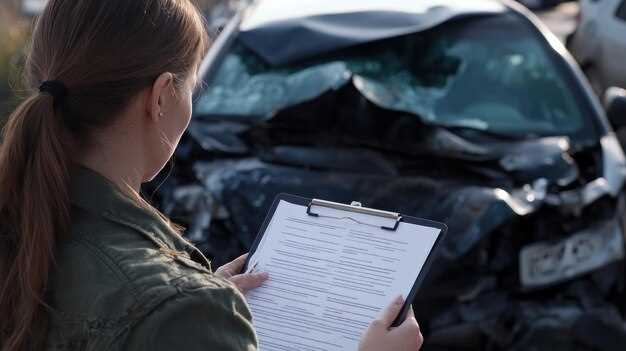
The resale value of a vehicle is influenced by various factors, but none is more significant than its accident history. A crash can leave lasting marks not only on the car’s physical condition but also on its market appeal. When potential buyers evaluate a used vehicle, they often turn to the report detailing its past incidents, which can dramatically affect their perception of its value.
Vehicles involved in accidents tend to depreciate at a faster rate compared to those with clean histories. Buyers are generally wary of investing in cars that have been through a crash, fearing potential hidden damages and diminished performance. Consequently, a vehicle’s report serves as a crucial document that buyers reference when assessing a car’s worth. Any mention of previous collisions can lead to significant reductions in the asking price and overall value.
Understanding the full impact of accident history on resale value is key for both sellers and buyers. Sellers may need to practice transparency when discussing their vehicle’s report while strategizing on pricing to remain competitive. On the other hand, buyers must weigh the risks associated with purchasing a car that has a history of accidents, considering how it may influence long-term reliability and value.
How Accident Reports Affect Buyer Perception and Bargaining Power
Accident reports play a crucial role in shaping buyer perception and influencing negotiation dynamics in the used vehicle market. Understanding their impact is essential for both sellers and buyers.
- Transparency of History: An accident report discloses a vehicle’s crash history, providing potential buyers with vital information about previous damages. This transparency can lead to concerns regarding the vehicle’s reliability.
- Diminished Trust: Buyers often rely on the integrity of a vehicle’s accident report. A prior accident, especially if severe, can diminish trust in the seller. This lack of confidence may skew buyers’ opinions, causing them to perceive the vehicle as less desirable.
- Impact on Resale Value: A history of accidents typically results in a lower resale value. Buyers are often aware of the potential hidden costs associated with previously damaged vehicles, making them less willing to pay a premium price.
- Bargaining Power: Buyers equipped with accident reports possess greater bargaining power. They can leverage the vehicle’s reported crash history to negotiate a lower price. This often results in sellers having to adjust their asking price accordingly.
In summary, accident reports significantly affect buyer perception by introducing doubts about the vehicle’s condition and safety. Sellers may face challenges in maintaining a favorable price as potential buyers use this information to strengthen their negotiating position.
Calculating Diminished Value: Methods and Considerations

When assessing the impact of an accident on a vehicle’s resale price, calculating diminished value is crucial. Diminished value refers to the loss in a vehicle’s market value due to a prior crash, even after repairs are completed. There are several methods to calculate this loss, each with unique considerations.
One common method is the 17c formula, which is based on the assumption that vehicles depreciate at a predetermined rate. This approach involves determining the car’s pre-accident value, applying a percentage for diminished value, and adjusting for mileage and condition. It’s essential to research comparable sales data to ensure accuracy in pre-accident value estimations.
Another method is the comparative sales approach, which looks at the sale prices of similar vehicles that have not been involved in accidents. By comparing the selling prices of these vehicles to those of similar models with crash histories, a clearer picture of diminished value can be obtained. This method relies heavily on local market data and proper vehicle evaluations.
Additionally, the perception of buyers plays a significant role in diminished value calculations. Even if a vehicle has been professionally repaired, potential buyers may still view it with skepticism, impacting its resale price. Understanding consumer attitudes toward accident history is important when assessing the final diminished value.
In all methods, it is crucial to document the accident details, repairs performed, and any warranties provided. These considerations can influence how buyers perceive the vehicle’s condition and value. Accurate calculations of diminished value can help owners make informed decisions when selling their vehicles post-accident.
Strategies for Selling a Vehicle with a Crash History

Selling a vehicle with a crash history can be challenging, as it often results in a diminished resale value. However, with the right strategies, you can maximize your profit and find a buyer willing to overlook past incidents.
First and foremost, obtain a comprehensive report detailing the vehicle’s history. This report should include information about the crash, repairs made, and any other issues that may affect its value. Transparency is crucial; providing potential buyers with documented proof of the vehicle’s condition can help build trust.
Next, ensure that the vehicle is in the best possible condition before listing it for sale. Make necessary repairs and consider minor cosmetic fixes that can improve its appearance. A well-maintained car is more attractive to buyers, even if it has a crash history.
When creating your listing, be upfront about the vehicle’s past accidents. Highlight the improvements made since the incident and emphasize aspects that showcase its reliability and performance. This approach can create a sense of reassurance for buyers who might be wary of a previous crash.
Additionally, consider leveraging online platforms that cater to vehicles with a history. These specialized marketplaces often attract buyers who are more accepting of past incidents and understand that a slight discount is warranted. Target your advertising efforts to emphasize the value for money and the vehicle’s potential.
Finally, be prepared to negotiate. Acknowledging the diminished value resulting from the crash can empower you to make concessions that facilitate a sale. Flexibility in pricing may appeal to buyers willing to invest in a vehicle that meets their needs despite its history.



